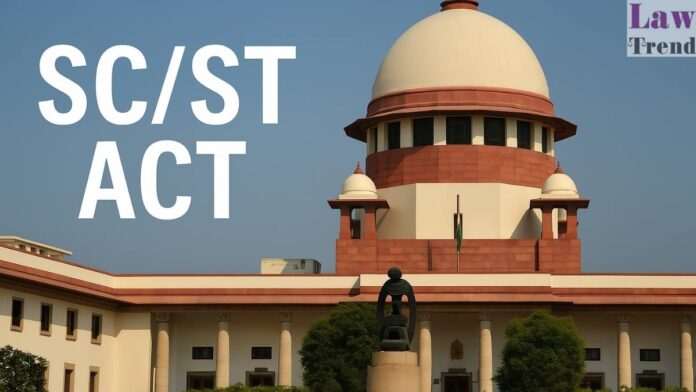The Supreme Court of India has set aside an order of the Bombay High Court that granted pre-arrest bail to an individual accused of offences under the Scheduled Castes and Scheduled Tribes (Prevention of Atrocities) Act, 1989. A bench comprising CJI B.R. Gavai, Justice K. Vinod Chandran and Justice N.V. Anjaria held that the bar

To Read More Please Subscribe to VIP Membership for Unlimited Access to All the Articles, Download Available Copies of Judgments/Order, Acess to Central/State Bare Acts, Advertisement Free Content, Access to More than 4000 Legal Drafts( Readymade Editable Formats of Suits, Petitions, Writs, Legal Notices, Divorce Petitions, 138 Notices, Bail Applications etc.) in Hindi and English.
Click to Subscribe
If you are already a VIP Member, Click to Login Now
READ ALSO Supreme Court Notifies Benches for Partial Court Working Days from May 26 to July 13, 2025




